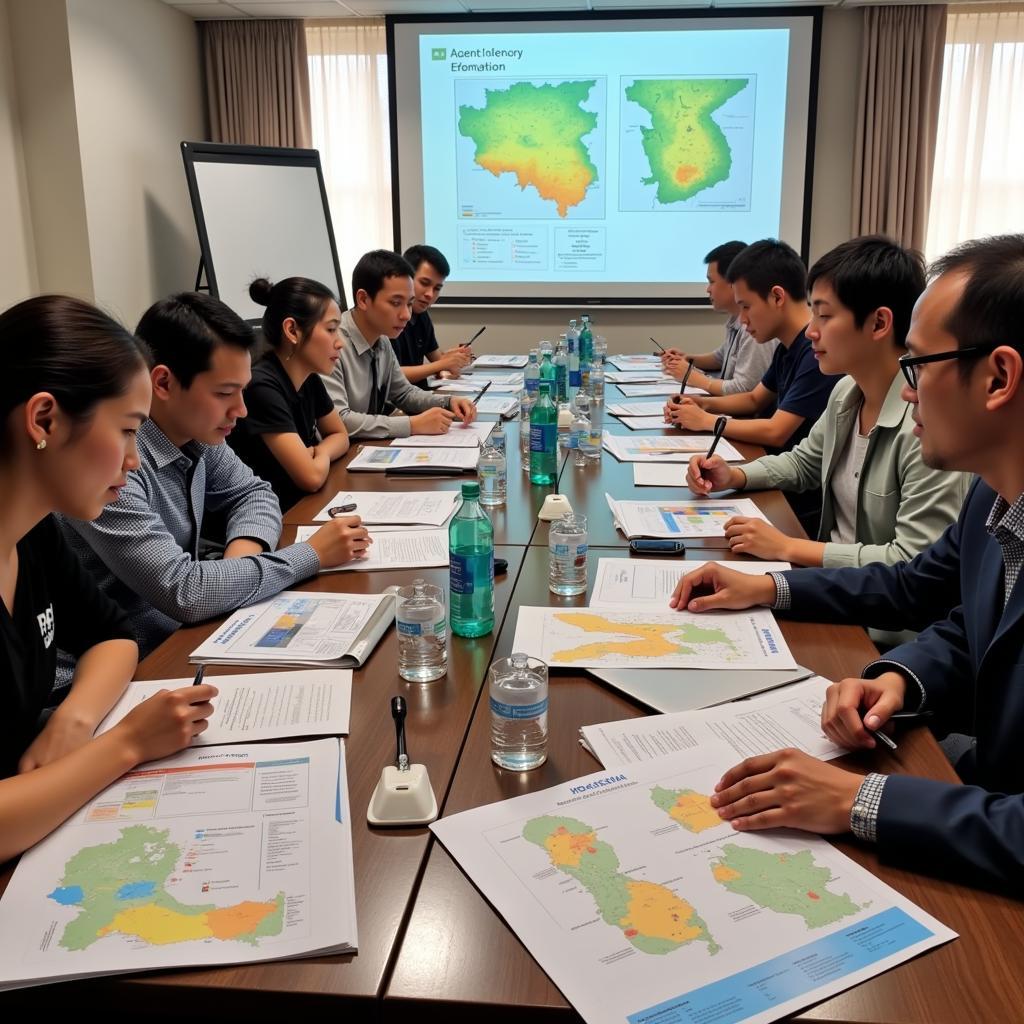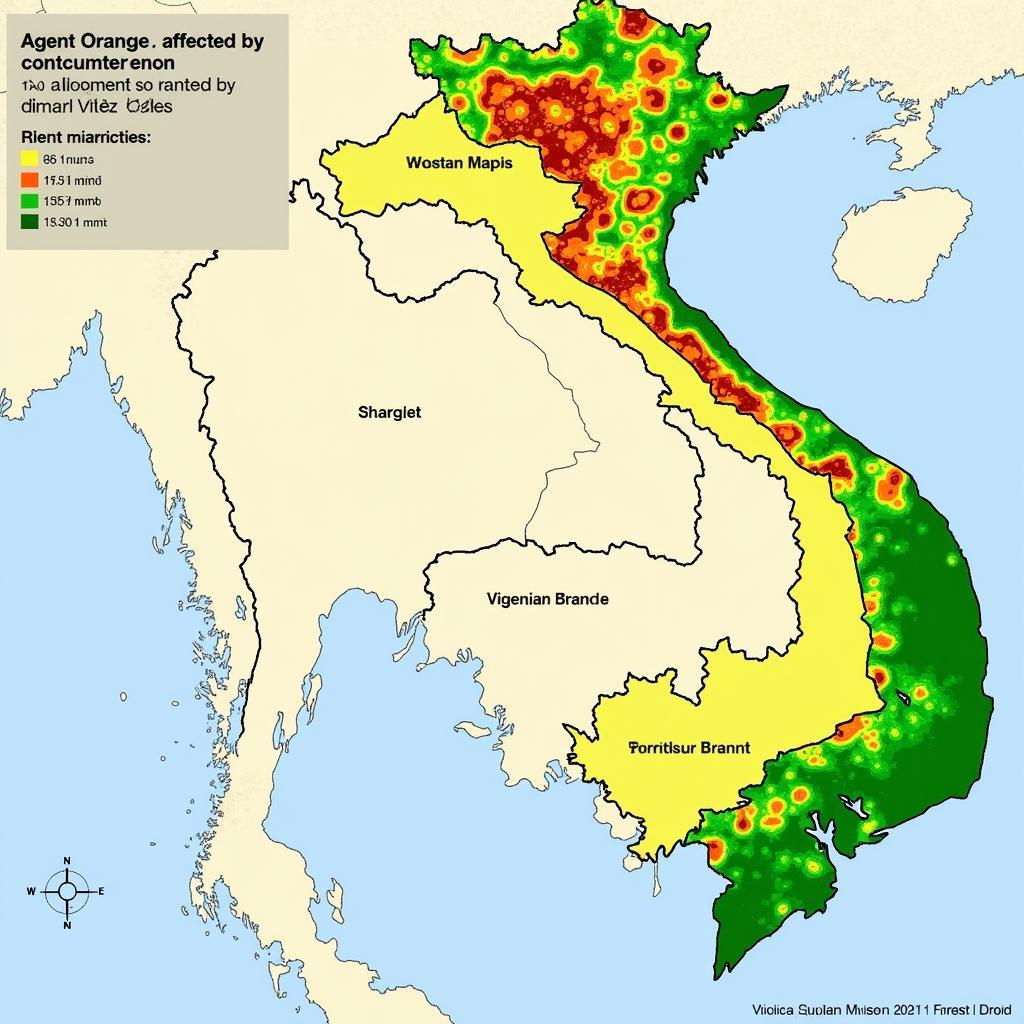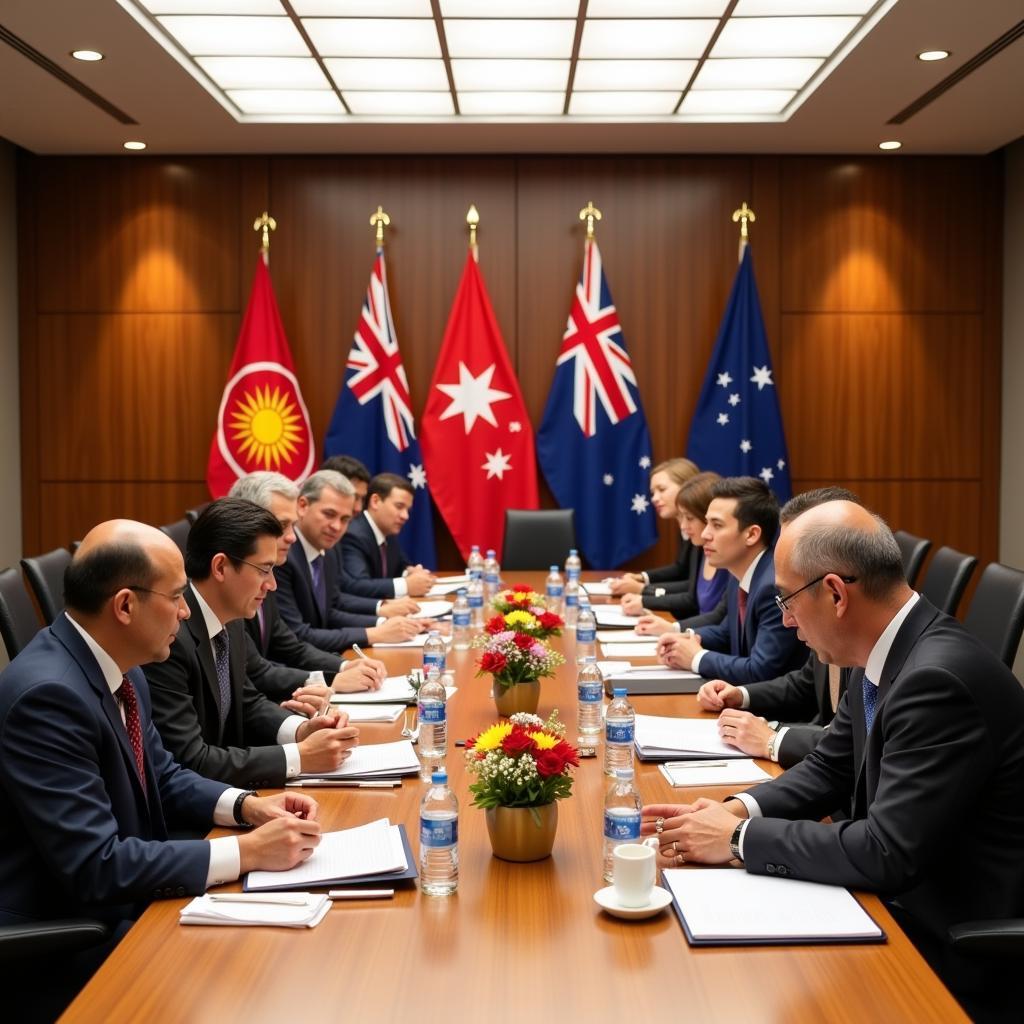Agent Orange, a potent herbicide used during the Vietnam War, continues to cast a long shadow over Southeast Asia, particularly within the ASEAN region. Its impact extends far beyond the battlefields, affecting generations with health issues and environmental damage. This article delves into the multifaceted legacy of Agent Orange in ASEAN, exploring its historical context, ongoing consequences, and the collaborative efforts to address this enduring challenge.
The widespread use of Agent Orange by the US military between 1961 and 1971 had devastating consequences for Vietnam, Laos, and Cambodia, all now members of ASEAN. The chemical, designed to defoliate forests and destroy crops, contained dioxin, a highly toxic persistent organic pollutant. The dioxin contamination has led to a range of serious health problems, including birth defects, cancers, and immune system disorders.
The Lingering Effects of Agent Orange
The health impacts of Agent Orange are not limited to the first generation exposed. Children and grandchildren of those directly affected continue to experience birth defects and other health complications. This transgenerational impact adds another layer of complexity to the issue and underscores the long-term consequences of Agent Orange exposure. Beyond the human cost, the environment also suffered significant damage. Large swathes of forest were destroyed, impacting biodiversity and leaving lasting scars on the landscape. The contamination of soil and water sources continues to pose a threat to human health and ecosystems.
 Agent Orange's Impact on Children in Vietnam
Agent Orange's Impact on Children in Vietnam
ASEAN’s Response: Collaborative Efforts and International Cooperation
ASEAN nations have actively sought international cooperation to address the legacy of Agent Orange. Vietnam, in particular, has worked with international organizations and the US government to address the health and environmental consequences. Efforts have focused on providing medical care and rehabilitation services to affected individuals and families, as well as conducting research to better understand the long-term health effects of dioxin exposure. Remediation of contaminated areas is also a key priority, aiming to restore the environment and prevent further exposure.
ASEAN’s commitment to shared responsibility and regional cooperation is evident in its approach to the Agent Orange issue. The organization recognizes that the problem transcends national borders and requires a collective effort. Several ASEAN countries have also implemented programs to support victims of Agent Orange, including providing financial assistance and access to healthcare.
 ASEAN Collaboration on Agent Orange Remediation
ASEAN Collaboration on Agent Orange Remediation
What are the long-term health effects of Agent Orange exposure?
Exposure to Agent Orange has been linked to a range of serious health problems, including various types of cancer, birth defects, immune system disorders, and neurological problems. These effects can persist across generations, impacting the children and grandchildren of those directly exposed.
How is Agent Orange affecting the environment in ASEAN?
Agent Orange caused widespread deforestation and contamination of soil and water sources. This environmental damage continues to pose a threat to human health and ecosystems, affecting biodiversity and hindering the recovery of affected areas.
“The long-term impact of Agent Orange serves as a stark reminder of the devastating consequences of chemical warfare,” states Dr. Nguyen Thi Minh, a leading Vietnamese expert on dioxin exposure. “Continued research and international collaboration are crucial to mitigating the effects on both human health and the environment.”
 Agent Orange Contaminated Areas in Vietnam
Agent Orange Contaminated Areas in Vietnam
What is being done to help victims of Agent Orange?
Various programs are in place to support victims of Agent Orange, including providing medical care, rehabilitation services, financial assistance, and access to healthcare. International organizations and governments are also involved in these efforts, collaborating with ASEAN nations to address the long-term health and environmental consequences. ASEAN associated with UNO plays an important role. All ASEAN countries are received equal rights and support in their journey to overcome the consequences of Agent Orange.
Conclusion
Agent Orange remains a significant challenge for ASEAN, requiring sustained efforts to address the health and environmental consequences. Through regional cooperation, international partnerships, and continued research, ASEAN nations are striving to mitigate the long-term effects of this devastating chemical and build a healthier future for generations to come. The collaborative spirit within ASEAN offers a beacon of hope for overcoming this shared legacy and achieving lasting solutions.
FAQ
- What is Agent Orange?
- What are the health effects of Agent Orange?
- How does Agent Orange affect the environment?
- What is ASEAN doing to address the Agent Orange issue?
- How can I support Agent Orange victims?
- What are the long-term effects of Agent Orange exposure on future generations?
- What are the ongoing challenges in remediating Agent Orange contaminated areas?
For further assistance, please contact us at Phone Number: 0369020373, Email: [email protected] or visit our address: Ngoc Lien Village, Hiep Hoa, Bac Giang, Vietnam. Our customer support team is available 24/7.


